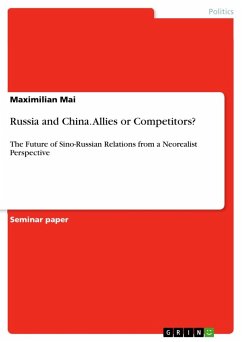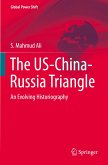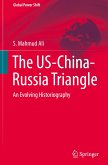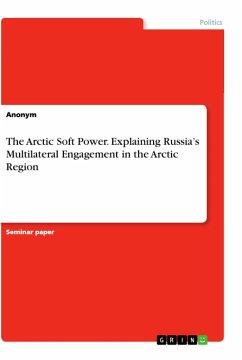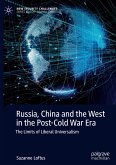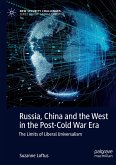Seminar paper from the year 2014 in the subject Politics - Region: Far East, grade: 1,0, Martin Luther University (Institut für Politikwissenschaften und Japanologie), course: International Relations: Russian Foreign Policy, language: English, abstract: Russia and China share a long common history since official relations started in 1683 with the Treaty of Nertschinsk , which marks the first bilateral agreement between China and a western state. Since that time, Russia has been a colonial power, a communist sister country, a revisionist and eventually a reliable partner for China. Sino-Russian relations underwent many breakings and challenges, making both countries' common history one of the most changeful one could imagine. Nowadays their relation seems to be at an all-time high. Notwithstanding the Ukrainian crisis, Russia and China signed several important cooperation and investment agreements in May and in October 2014, including a giant gas deal for which both countries drove a ten years hard bargain and a cross-currency swap . This crushed western hopes for a growing gap between "bear and dragon" in face of Crimea annexation and caused observers to talk of a Sino-Russian "honeymoon" . However, under the surface their relation is not without any problems. First of all there is a problem of the base: the lack of a common strategy. Beyond opposing the US and the opaque overall idea of a "multipolar world", both countries do not share a clear vision of a future international system. Moreover, there is a growing dissent in Central Asia as well as growing Chinese nationalism in combination with the unresolved "Siberian question" leading to worries in Russia. Above all, increasing economic asymmetries in China's favour nurture Russian fears of becoming a "junior partner" or a "resource appendix" to China. Thus, the future of Sino-Russian relations remains a controversial subject: Is it a natural partnership or just lack of alternatives? Will they beallies or competitors?
Bitte wählen Sie Ihr Anliegen aus.
Rechnungen
Retourenschein anfordern
Bestellstatus
Storno

